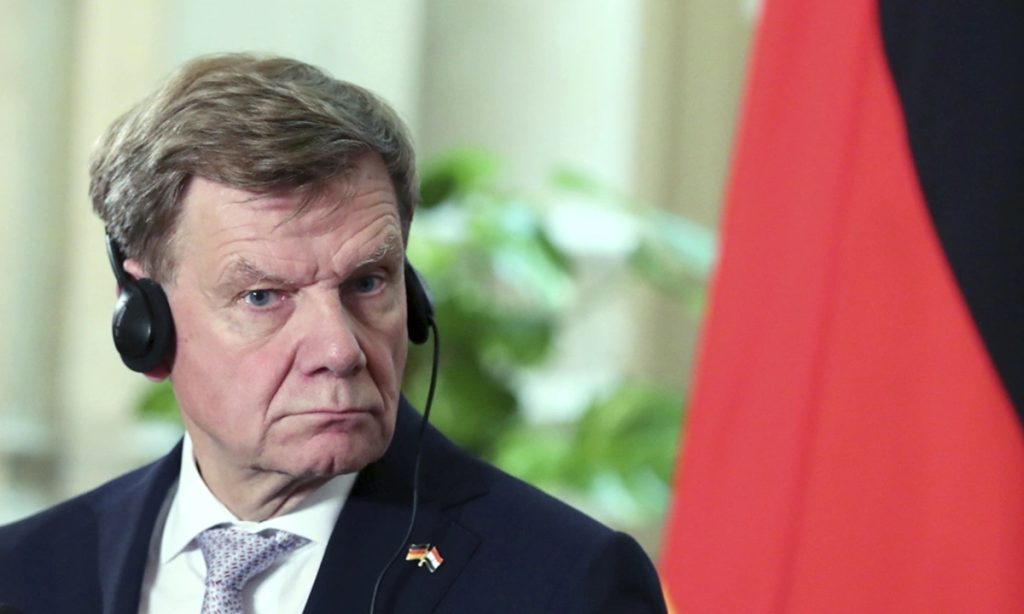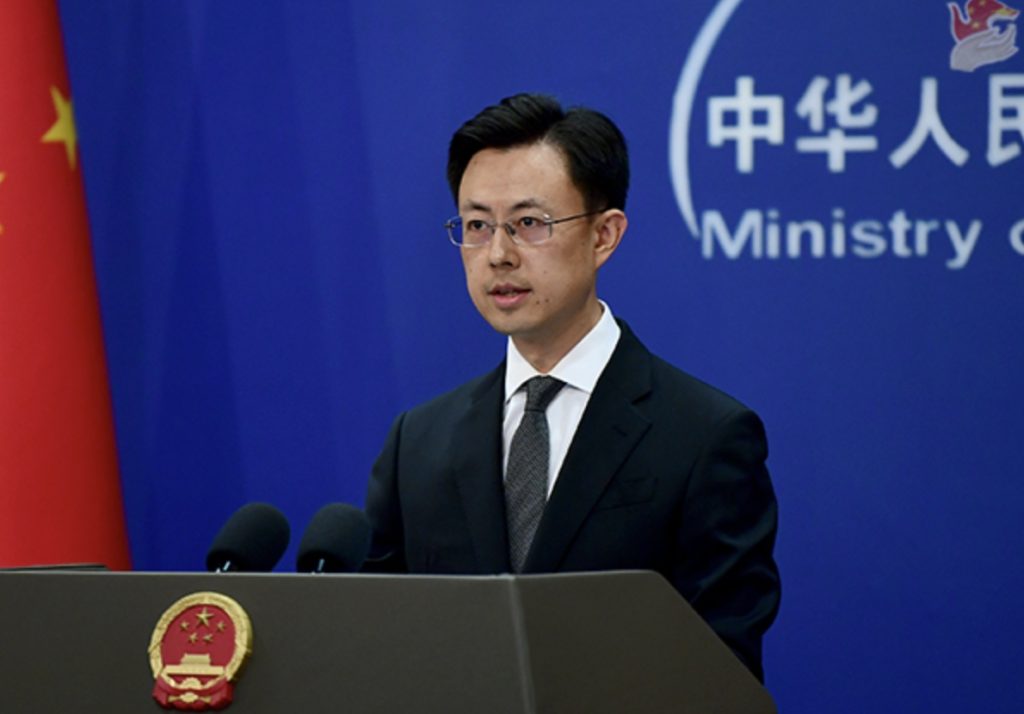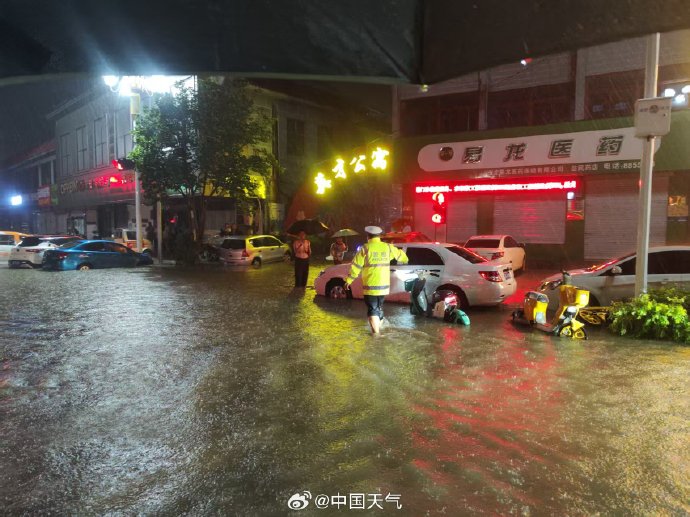Chinese FM spokesperson urges relevant parties not to hype up tensions following German foreign minister’s remarks on Taiwan, East and South China Seas

In response to the criticism made by German Foreign Minister Johann Wadephul during his visit to Japan, who claimed that China has repeatedly issued public threats in the Taiwan Straits, the East China Sea, and the South China Sea to unilaterally change the status quo, Chinese Foreign Ministry spokesperson Mao Ning said on Monday that the Taiwan question is China's internal affair. The one-China principle is the political foundation for China to establish and develop diplomatic relations with countries around the world, a basic norm of international relations, and a broad consensus within the international community.
To safeguard peace and stability across the Taiwan Straits, it is essential to firmly uphold the one-China principle and oppose "Taiwan independence" separatist activities, the spokesperson said.
The situation in the East China Sea and South China Sea remains generally stable. "We urge relevant parties to respect the joint efforts of regional countries to resolve issues through dialogue and consultation and to safeguard peace and stability, rather than stoking confrontation or hyping up tensions," Mao said.
Ahead of his first trip to Asia since taking office in May, German Foreign Minister Johann Wadephul claimed that "China's behavior in the Taiwan Straits is aggressive," Reuters reported on Sunday. A Chinese expert on European affairs called such a statement highly discourteous in diplomatic practice, negatively impacting China-Germany and China-EU relations.
Wadephul made this statement before a trip to Japan and Indonesia, Reuters said. Speaking to reporters, he praised Japan's solidarity with Europe over Ukraine as he prepared to board a plane, and highlighted the importance and economic potential of the two populous Asian countries, according to Reuters.
The German Foreign Ministry also published a separate statement from Wadephul in which he expressed concern about China on the Taiwan question as well as on the East and South China Seas.
After holding talks with his Japanese counterpart Takeshi Iwaya on Monday, the German foreign minister repeated those criticism, claiming that China's repeated threats to "unilaterally change" borders in the Asia-Pacific region, the AFP reported.
"It's regrettable that when it comes to China's core interests—particularly the Taiwan question—some German politicians have chosen to make unwarranted remarks rather than show understanding and respect," Jiang Feng, research fellow at the Shanghai International Studies University and president of the Shanghai Association of Regional and Country Studies, told the Global Times on Monday. This provocative move not only reflects a lack of historical awareness but also violates the long-standing political consensus in China-Germany relations, Jiang emphasized.
The scholar noted that Germany had long been in a state of division and should have a deep understanding of the yearning for national reunification. China's current position on the issue of national unity is, in fact, similar to Germany's own historical aspiration for reunification.
This was not the first time Wadephul raised the so-called concerns over the Taiwan question. In an interview published by the German Foreign Ministry in July, he claimed that the "status quo" of the Taiwan Straits should not be changed through force.
Ahead of his visit to Japan, Wadephul also expressed on Sunday his eagerness to reinforce his country's cooperation with Japan in order to stabilize the international order, Japan-based Jiji Press reported.
"Germany and Japan are standing together against the crisis of the global security environment caused by Russia and China," Wadephul said in a statement, per Jiji Press.
His recent visit and related remarks carry a strong sense of "forming alliances," particularly in interactions with Japan and the US, portraying China as a so-called "aggressor" or "threat," as if positioning themselves as "guardians of regional and even global security," Jiang noted.
Yet, both Germany and Japan once brought immense disasters to Asia, Europe, and the world at large, which makes their frequent rhetoric on peace and security logically inconsistent, he said.
"What is more concerning is that, against the backdrop of insufficient historical reflection, voices glorifying war and promoting xenophobia remain present, especially in Japan. As a result, their self-image as 'defenders of peace' inevitably raises questions of legitimacy and credibility, " the expert said.
It is also worth noting that China and Russia, as victorious powers in WWII, made enormous sacrifices for global peace—China lost tens of millions of lives, and the Soviet Union over 30 million. That sacrifice secured the post-war international order, Jiang said.
"Today, however, former defeated nations are attempting to reshape the narrative, casting the victors as threats. This is nothing less than a desecration of both history and the sacrifices made," he added.
In meeting with Wadephul during the 8th round of China-Germany Strategic Dialogue on Diplomacy and Security in July, Chinese Foreign Minister Wang Yi said on Taiwan question, to ensure peace and stability in the Taiwan Straits, it is imperative to firmly oppose "Taiwan independence" and avoid sending any wrong signals to separatist forces. It's also worth noting that during the dialogue, Wadephul said the German government firmly adheres to the one-China policy. The Chinese expert called on Germany to demonstrate consistency between words and actions, and genuinely respect China on the Taiwan question, which is a core interest for China.

